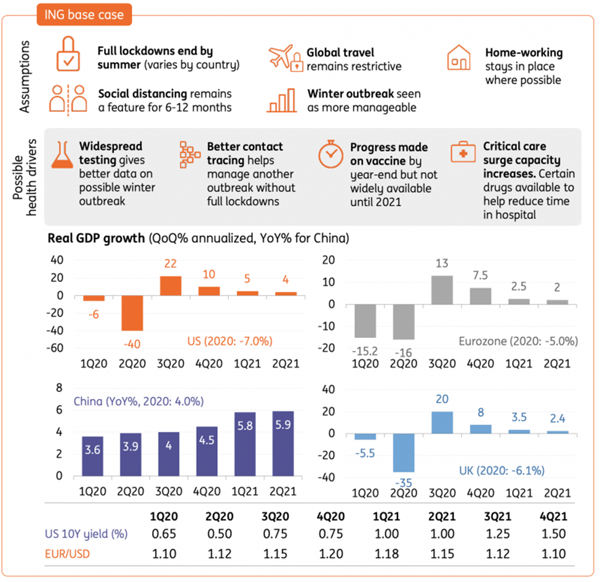How Scenario Planning Can Help Revenue Managers Prepare for the Post-COVID Recovery
Forget about forecasting demand as the economy sputters to a start. Any forecast will be wrong.
Even the most astute economists have no idea what is in store for the global economy. The World Economic Forum recently polled 50 economists. Their estimates ranged from a 6% GDP decline this year to an 0.7% gain. The travel industry was hit far harder than any other sector, and its recovery is even more uncertain.
In an insightful HSMAI Roundtable Discussion, Dave Roberts, former SVP Revenue Strategy for Marriott International and now Virginia Tech Professor, declared that “Forecasts are pointless in this environment.” The most anyone can do is create various scenarios. He cautions that hospitality is facing a two-phase downturn. The first, caused by the viral outbreak, shut down virtually all travel. In the immediately following second downturn, he sees a protracted economic recession equivalent to 2008-2009. Without visibility into when or how the economy will re-open, Roberts says that the best course of action is to develop a wide range of scenarios. Those scenarios would help you plan for any eventuality.
Jeffrey Roper, CEO at Stargate Partners, has three decades of experience in Revenue Management systems for travel & transportation as well as multifamily housing. He recently developed a robust scenario planning approach for his CPG/Retail customers which would adapt nicely to hospitality.
He suggests that one plausible post-COVID scenario tool could be as simple as making the following assumptions:
Phase I (Apr 1 to Jun 30) ---30% of normal demand
Phase II (Jul 1 to Sep 30)—50% of normal demand
Phase III (Oct 1 to Dec 31)—70% of normal demand
Date ranges and percentages of demand could be easily changed to create various scenarios. Three scenarios, Best Case, Worst Case and Most Likely Case, should suffice. If you want to get more sophisticated, check out ING Group’s "Four Scenarios for the Global Economy After COVID-19." It’s a tremendously comprehensive approach—probably overkill for hospitality—but it may give you some ideas for a scenario planning capability which is better crafted for your particular markets than a simple percentage of historical demand.

Don’t overthink the scenario planning process. Enlist the help of others. If you collaborate with others in sales, marketing, and operations, that should assist you in the construction of reasonable scenarios and the buy-in of others as necessary. The important point of this exercise is not to predict what will happen, but to be ready for anything that might happen.
No single Grand Strategy is going to deliver success. Success in the chaotic, uncertain post-COVID world will go to those who are most prepared. You will need an action plan for each scenario. Those plans must include answers to questions like: “When and where do we bring capacity back?” “How should our staffing model evolve?” And most critically: “How low are we willing to go on rate—no matter how dire the outlook may be?”
Speed and nimbleness are required for post-COVID success. I hope these suggestions help you plan plausible scenarios in advance. Be sure to develop specific actions for how you will respond under each scenario. If you do these things, you will be as prepared as possible for the problematic post-COVID recovery.
Request a personalized demo and learn how the Revenue Analytics N2Pricing™ RMS empowers hoteliers to consistently outperform revenue targets and save time in the process.

